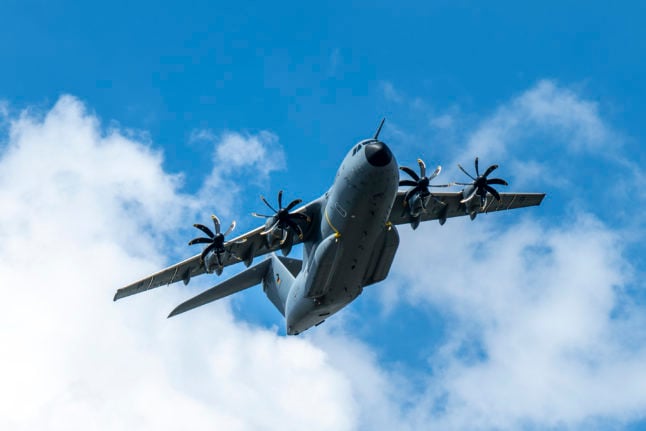"The ceasefire in itself alone is not enough," Burkhalter, who is acting head of the Organization for Security and Cooperation in Europe, told reporters in Geneva.
"We need a political process, national dialogue (and) dialogue between the two presidents," he insisted, adding that his organisation was "ready to help."
Burkhalter, who also serves as Swiss foreign minister, stressed the importance of the truce signed in the Belarussian capital Minsk Friday, warning that if it did not hold "things could get worse than before".
The 12-point pact was the first to win the backing of both Kiev and Moscow after five months of warfare that set off the deepest crisis in East-West relations for a generation.
But fresh fighting in eastern Ukraine over the weekend has threatened the fragile ceasefire.
Burkhalter said 59 OSCE experts had been scrambled to monitor the truce, but stressed the need to strengthen the mission.
He acknowledged that he had "not been optimistic at all since the beginning" of the crisis, which has killed more than 2,700 people, according to UN figures released Monday.
But the Swiss president waved aside questions about whether he thought the conflict could escalate into a new world war.
"We are not moving to a war," he told reporters.
Speaking as the European Union prepared to unveil punishing new sanctions on Russia, expected to hit the country's oil industry, Burkhalter also insisted that "sanctions will not resolve the problems".
While sanctions could be justified by Russia's "violation of international law with its annexation of Crimea", he said increased dialogue with Moscow would be a more effective way of addressing the crisis.
"The crisis cannot be resolved without dialogue with Russia," he told Swiss public broadcaster RTS, insisting that "if you want to resolve Europe's problems, you cannot do so without Russia".
Burkhalter also called for "inter-Ukrainian dialogue to determine the relations between the (Ukrainian) regions".
Switzerland, which is not a member of the EU, has chosen not to join the broad sanctions against Russia over Ukraine, instead opting for targeted moves against individuals and firms.
The Swiss have also imposed measures to ensure their financial sector is not used to duck sanctions introduced by other countries.
"We don't want to be used in the frame of sanctions," Burkhalter told reporters, emphasizing that Switzerland has "our own autonomous foreign policy."
UKRAINE
Burkhalter warns Ukraine ceasefire ‘not enough’
A shaky ceasefire in Ukraine alone is not enough to end the conflict, Swiss President Didier Burkhalter, the head of the OSCE, said on Monday, calling for a political process and urging dialogue over sanctions.
Published: 8 September 2014 17:52 CEST
Url copied to clipboard!


 Please whitelist us to continue reading.
Please whitelist us to continue reading.
Member comments